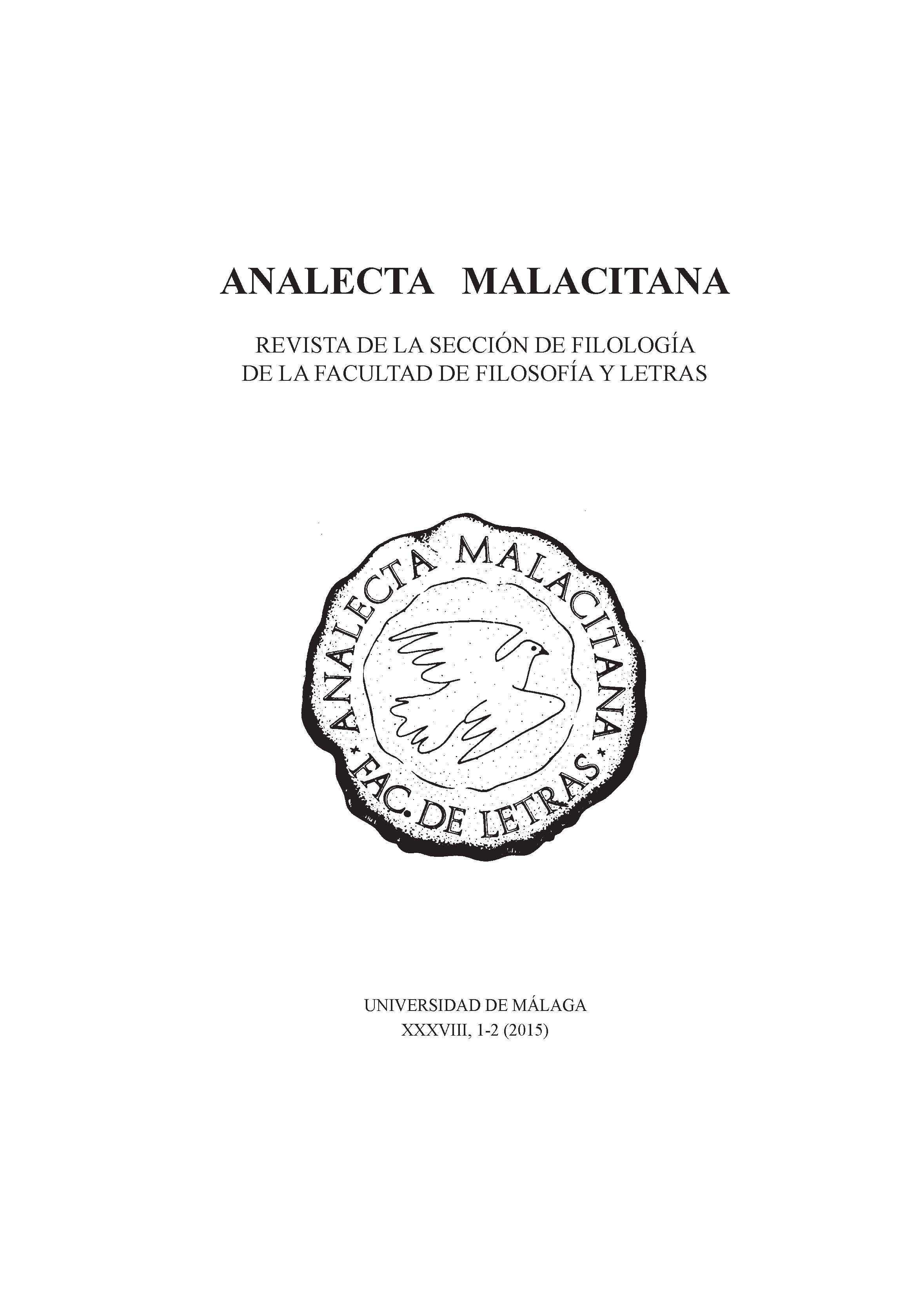Apuntes a Ino y Temisto de Francisco Comella
DOI:
https://doi.org/10.24310/analecta.v38i1.4349Abstract
RESUMEN: La única tragedia del dramaturgo español Luciano Francisco Comella titulada Ino y Temisto trata el mito de Atamante. Si bien en muchos puntos se mantiene ? el a la tradición mítica de esta saga, como se ve en la imagen que ofrece de Ino y de Temisto, en otros temas se aparta sustancialmente de la tradición clásica e incorpora nuevos datos a la rica historia de esta leyenda. Un análisis de estas divergencias y de los principales temas tratados en esta representación ayuda a comprender mejor la recepción del mito de Atamante en el teatro español del s. XVIII.
ABSTRACT: Ino y Temisto, the only tragedy of the Spanish playwright Luciano Francisco Comella, deals with the myth of Athamas. Although Comella is faithful to many details of the story, as can be seen in the image of Ino and Themisto, he differs considerably from the classical tradition and incorporates new material into the rich history of this legend. An analysis of these differences and of the main issues of the play helps us to understand better the reception of Athamas’ myth in Spanish theatre of the eighteenth century.
Downloads
Metrics
Downloads
Published
How to Cite
Issue
Section
License
In the Analecta Malacitana Journal we are clearly committed to a policy of open access to scientific knowledge (See the Berlin Declaration).
Those authors who have publications with this journal accept the following terms:
This journal provides immediate free access to its content on the principle of making research freely available to the public. All content published on Margins is subject to the Creative Commons Attribution-No Derivatives 4.0 International license.
It is the responsibility of the authors to obtain the necessary permissions of the images that are subject to copyright.
Authors whose contributions are accepted for publication in this journal will retain the non-exclusive right to use their contributions for academic, research, and educational purposes, including self-archiving or deposit in open access repositories of any kind.
The electronic edition of this magazine is edited by the Editorial of the University of Malaga (UmaEditorial), being necessary to cite the source in any partial or total reproduction.
The authors may adopt other non-exclusive license agreements for the distribution of the version of the published work (for example: deposit it in an institutional telematic archive or publish it in a monographic volume) provided that the initial publication in this magazine.
Authors are allowed and recommended to disseminate their work through the Internet (for example: in institutional telematic archives or on their web page) before and during the submission process, which can produce interesting exchanges and increase citations to the published work. (See The effect of open access.)





25.png)
